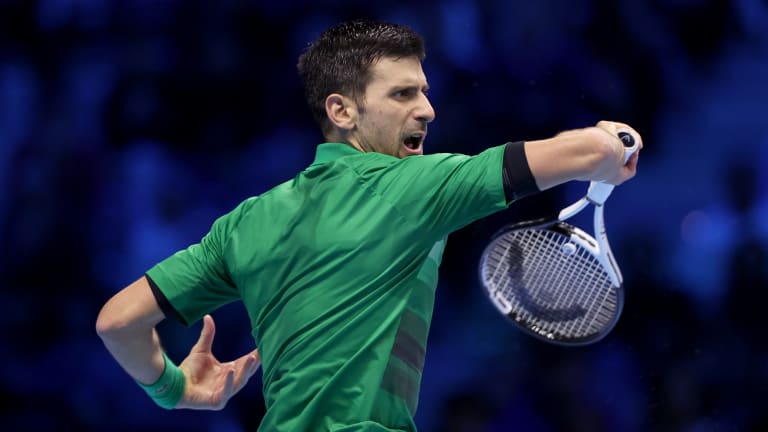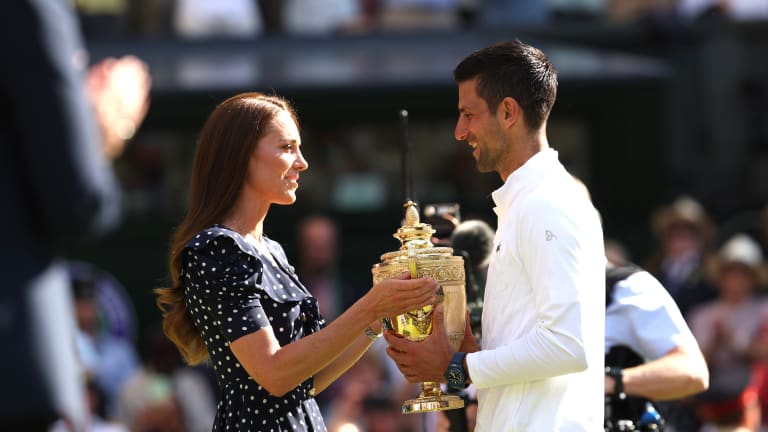2022 Year In Review
Top 5 ATP Players of 2022, No. 3: Novak Djokovic
By Dec 14, 20222022 Year In Review
The Baseline Awards: Tearjerker Moment
By Dec 22, 20222022 Year In Review
The Baseline Awards: Biggest Question Mark
By Dec 21, 20222022 Year In Review
The Baseline Awards: Patriotic Performance
By Dec 20, 20222022 Year In Review
The 2022 Baseline Awards: Dual Threats
By Dec 19, 20222022 Year In Review
Top Fashion Moments of 2022: When Serena Williams twirled away in a diamond-encrusted dress
By Dec 17, 20222022 Year In Review
Top 5 ATP Players of 2022, No. 1: Carlos Alcaraz
By Dec 16, 20222022 Year In Review
Top Fashion Moments of 2022: When Jelena Ostapenko made you lewk
By Dec 15, 20222022 Year In Review
Top 5 ATP Players of 2022, No. 2: Rafael Nadal
By Dec 15, 20222022 Year In Review
Top Fashion Moments of 2022: Is Casper Ruud the style heir to Roger Federer?
By Dec 14, 2022Top 5 ATP Players of 2022, No. 3: Novak Djokovic
When Djokovic did take the court, he was frequently brilliant as ever.
Published Dec 14, 2022
Advertising

Despite not earning ranking points for winning Wimbledon, despite missing two Slams and four Masters 1000 events, Djokovic finished the year ranked fifth in the world.
© Getty Images
Advertising
Advertising
Advertising

Djokovic hasn't lost on grass in more than four years, at Wimbledon in more than five years and on Centre Court in more than nine years.
© 2022 Getty Images